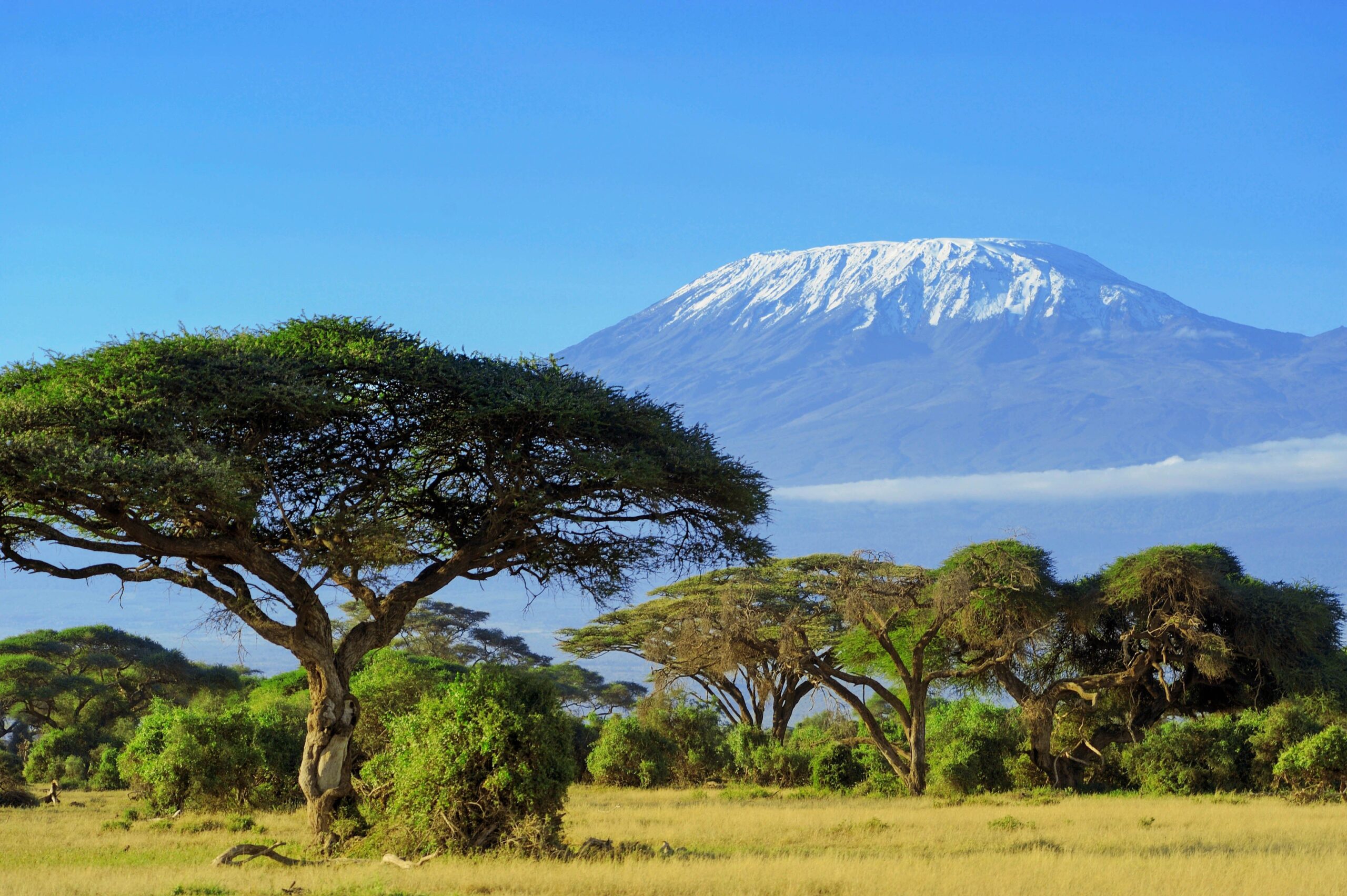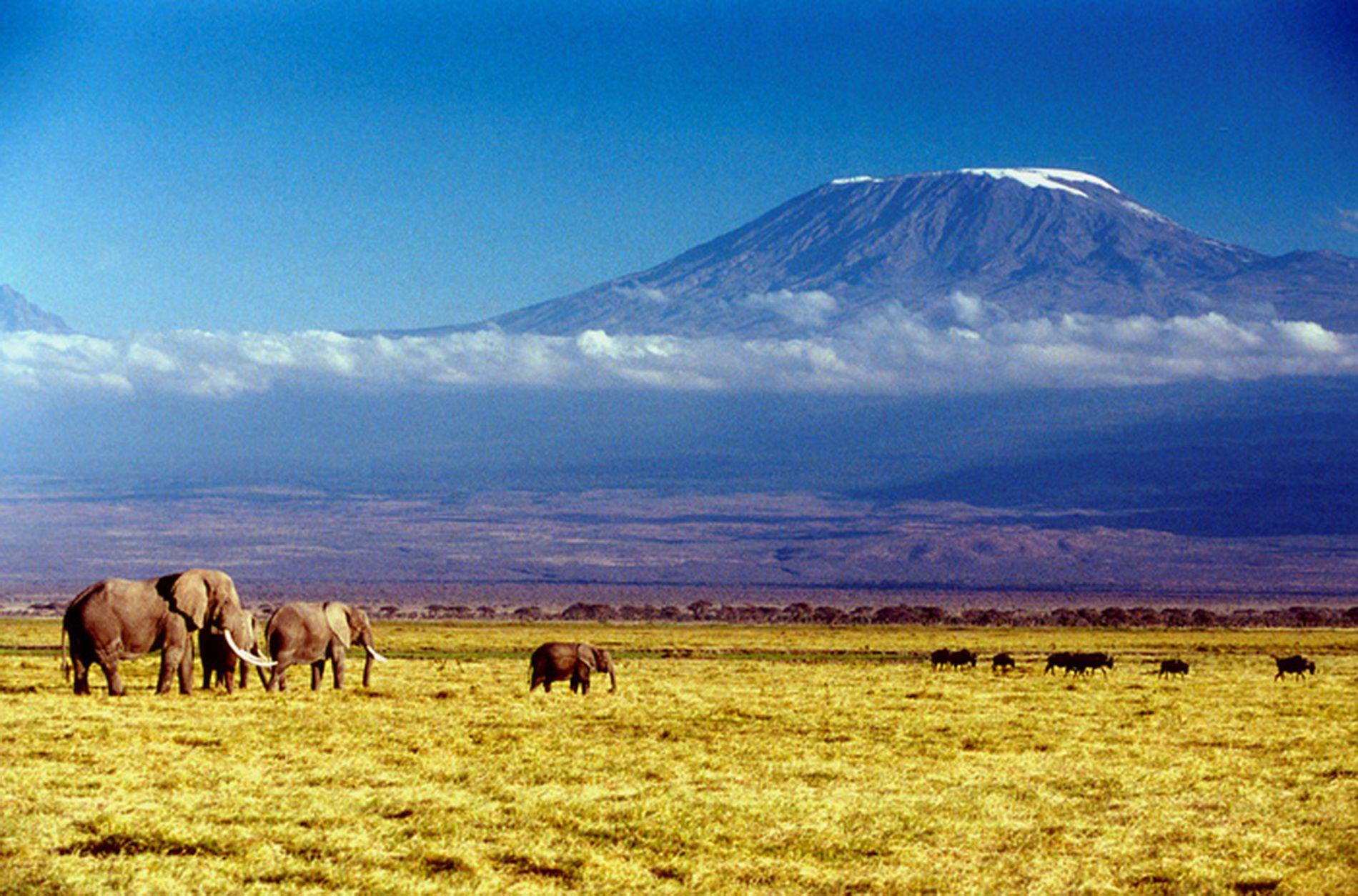Mt. Kilimanjaro Rongai Group Tour


Mt. Kilimanjaro Rongai Group Tour
NOTE:
ALL GROUP TOURS ARE SIMILAR TO THE EXCLUSIVE TOUR PACKAGES THEY COME IN A BUDGET TO EASEN TRAVELLING FOR EVERYONE AND THEY ARE NOT THE SAME AS PRIVATE TOURS.
Mount Kilimanjaro, the highest peak in Africa, stands at 5,895 meters (19,341 feet) above sea level. Located in Tanzania, this iconic mountain is renowned for its stunning, snow-capped summit and pristine, diverse ecosystems, ranging from lush rainforests to alpine deserts. Hiking Kilimanjaro offers adventurers a challenging yet rewarding experience, as they ascend through ever-changing landscapes to reach the "Roof of Africa". The Rongai Route is the only route that approaches Kilimanjaro from the north, near the Kenyan border. It is known for its gradual ascent and fewer crowds, making it an excellent choice for those looking for a quieter climb. The route offers varied landscapes and wildlife sightings, particularly on the lower slopes.
xperience.
Good to Know:
-
Country: Tanzania
-
Visa Requirements: Yes
-
Languages spoken: English & Swahili
-
Per Person: $250
-
Important to have Visa & Travel Insurance
-
A knowledgeable guide will greatly enhance your experience.
-
Trekking Clothes, Personal Gear, Poles and Other Important Hiking equipment is necessary.
Day 1: Rongai Gate to Simba Camp
Elevation: 2,020m to 2,671m
Distance: 8 km
Hiking Time: 3-4 hours
Habitat: Montane Forest
Description: After a briefing in Moshi, drive to Rongai Gate, near the Kenyan border. Start the trek through the forest, where you might spot wildlife like colobus monkeys. The trail gradually ascends to Simba Camp, your first camp on the mountain.
Day 2: Simba Camp to Kikelewa Camp
Elevation: 2,671m to 3,600m
Distance: 10 km
Hiking Time: 6-7 hours
Habitat: Moorland
Description: The trail continues through the forest, eventually transitioning into moorland. Enjoy expansive views of Kibo and the Eastern Icefields as you approach Kikelewa Camp, located in a sheltered valley.
Day 3: Kikelewa Camp to Mawenzi Tarn Camp
Elevation: 3,600m to 4,330m
Distance: 5 km
Hiking Time: 4-5 hours
Habitat: Alpine Desert
Description: This shorter but steeper day takes you up to Mawenzi Tarn, located in the shadow of the majestic Mawenzi Peak. The campsite is set next to a small lake, providing stunning views and an excellent opportunity to acclimatize.
Day 4: Mawenzi Tarn Camp to Kibo Hut
Elevation: 4,330m to 4,695m
Distance: 8 km
Hiking Time: 5-6 hours
Habitat: Alpine Desert
Description: Cross the lunar landscape of the Saddle, a wide, barren area between Mawenzi and Kibo Peaks. The trek to Kibo Hut is relatively flat but can be challenging due to the altitude. Upon arrival, rest and prepare for the early morning summit attempt.
Day 5: Kibo Hut to Uhuru Peak to Horombo Hut
Elevation: 4,695m to 5,895m (Uhuru Peak) to 3,720m (Horombo Hut)
Distance: 21 km
Hiking Time: 12-15 hours
Habitat: Arctic Zone (summit) to Moorland (descent)
Description: Begin your summit attempt around midnight, climbing steep scree to reach Gilman’s Point on the crater rim. Continue along the rim to Uhuru Peak, the highest point in Africa. After celebrating at the summit, descend back to Kibo Hut for a short rest before continuing down to Horombo Hut.
Day 6: Horombo Hut to Marangu Gate
Elevation: 3,720m to 1,880m
Distance: 19 km
Hiking Time: 5-7 hours
Habitat: Moorland to Rainforest
Description: Descend through moorland and rainforest to Marangu Gate. Here, you'll receive your summit certificate before being transferred back to your hotel in Moshi or Arusha.


Prices vary depending on the tour operator, group size, and whether you opt for budget, mid-range, or luxury services.
What’s Included:
Accommodation:
Pre- and Post-Trek Hotel Nights: Usually 1-2 nights in Moshi or Arusha (one night before the trek and one night after).
Camping Accommodation: Tents and sleeping pads during the trek.
Meals:
All Meals on the Mountain: Breakfast, lunch, and dinner during the trek.
Drinking Water: Treated water provided throughout the trek.
Guides and Staff:
Professional Mountain Guides: Certified and experienced Kilimanjaro guides.
Porters: Porters to carry your gear and set up camp.
Cooks: A cook to prepare meals on the mountain.
Park Fees:
Kilimanjaro National Park Fees: Entrance, camping, and rescue fees.
Group Equipment:
Camping Gear: High-quality tents, dining tents, tables, chairs, and cooking equipment.
First Aid Kit: A basic first aid kit carried by the guide.
Transportation:
Transfers: Round-trip transfers between your hotel and the Kilimanjaro trailhead.
Summit Certificate:
Climbing Certificate: Awarded to climbers who reach Gilman’s Point or Uhuru Peak.
What’s Not Included:
Personal Gear:
Clothing: Personal trekking gear such as jackets, base layers, waterproof gear, gloves, hats, etc.
Sleeping Bag: You may need to bring or rent your own sleeping bag (recommended to be rated for -10°C/14°F or lower).
Trekking Poles: Personal trekking poles, if needed.
Travel Insurance:
Comprehensive Travel Insurance: Including coverage for high-altitude trekking, medical emergencies, trip cancellation, and evacuation.
Visa and Vaccinations:
Tanzanian Visa: The cost of obtaining a visa for Tanzania.
Vaccinations: Any required vaccinations (e.g., yellow fever) and personal medications.
Meals Not on the Mountain:
Meals in Moshi/Arusha: Before and after the trek (unless specifically included in your package).
Tips for Guides, Porters, and Cook:
Gratuities: Tipping is customary and expected, typically ranging from $200 to $300 per climber for the entire crew.
Personal Expenses:
Souvenirs, Snacks, and Drinks: Any personal purchases, additional snacks, drinks (soft drinks, alcohol), and souvenirs.
Optional Tours:
Additional Activities: Optional tours or activities, such as safaris or cultural tours before or after the trek.
Emergency Evacuation Beyond Rescue Fees:
Helicopter Evacuation: If required, any costs not covered by park rescue fees or personal travel insurance.
